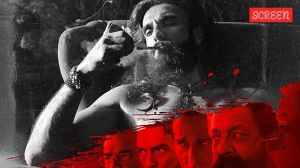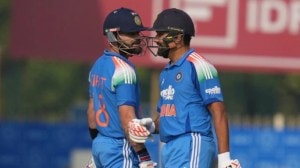377 different arguments
Speaking to a packed Delhi High Court room on Friday, the additional solicitor general, P.P. Malhotra...

Speaking to a packed Delhi High Court room on Friday, the additional solicitor general, P.P. Malhotra, said: “Legalising homosexuality will increase the spread of AIDS.” Just a week earlier, the Union health minister — and qualified doctor — Anbumani Ramadoss publicly stated that de-criminalising homosexuality would, in fact, help prevent the spread of AIDS.
Permitting sex between consensual adults seems a task for a just-demised-theocracy newly empowering its citizens, not an established liberal democracy like India. But the evil that some men do seems to live on. Drafted by Lord Macaulay in 1860, with Victorian certainty, Section 377 of the Indian Penal Code criminalises “carnal intercourse against the order of nature”. Subsequent courts have held this to include consensual sodomy, in effect criminalising homosexuality in India.
England, now Macaulay-less, has moved on: not only de-criminalising homosexuality, but even providing legitimacy to same-sex unions. But in India, homosexuality is viewed with suspicion; despite, according to a government study, 23 lakh people falling within the category. Political calculations — evident in ASG Malhotra’s response to court — have ensured that Section 377 has remained on the statute books. Though hardly anyone has been prosecuted for consensual sex under Section 377, it has proved a handy tool for truculent families or crooked cops to blackmail and illegally detain homosexuals.
A hundred and forty eight years on, the validity of Section 377 is being debated at the Delhi High Court. In Naz Foundation vs Govt. of N.C.T. of Delhi, the petitioners — gay rights NGOs — seek to “read down” Section 377, so that it does not apply to sexual acts between consenting adults, while still being used to protect minors and non-consenting adults. They are arguing that Section 377 is unconstitutional, and denies basic human rights to LGBTs (lesbians, gays, bisexuals and transexuals). Mayur Suresh, a bespectacled young lawyer representing a coalition of NGOs calling itself Voices against 377, believes that “medical evidence clearly shows that homosexuality is not changeable. It is not a curable disease.” As Shyam Divan, another lawyer for the coalition, argued in court yesterday, “For many homosexuals, their orientation is at the core of their identity… the moral argument cannot triumph over constitutional rights.” The other NGO involved, the Naz Foundation, has — strategically — employed a more medical argument, arguing that the stigma of illegality makes it very difficult to reach out to LGBTs who are at high risk from AIDS.
Opposing this is the Orwellian sounding Joint Action Council, Kannur or JACK. JACK believes that AIDS is a Western myth, created by greedy pharmaceutical companies to sell panaceas for a non-existent malady. Their lawyer, Ravi Shankar Kumar, opposes legalising homosexuality on medical grounds, telling me that there has never been any link established between homosexuality and AIDS. Kumar is not from the Stone Age: he promised to send me a “soft copy” of his statements by email.
B.P. Singhal, former BJP Member of Parliament, has also intervened to oppose the petition, though his concerns are more moral than medical. Stocky, well-dressed, and with an old-world formal courtesy about him, he has had a long career in the Indian Police Service, and a shorter one as chairman of the Film Censor Board. “Homosexuality is neither congenital nor incurable,” he told me, “and I have placed on record medical evidence about this.” Heating up, he added: “Look at these malls growing all over the place. Don’t you think that our morality is under attack? Anyway, the law will not change anything. Homosexuality is not accepted in society, and that will not change.” Why then, did he care about the judgment? “Legalising gays will be calamitous,” he responded, “It will encourage all kinds of vices… brothels.”
In terms of their legal arsenal, neither Singhal nor JACK seems a match for the committed and better-coordinated NGOs they’re opposing. Producing case after well-researched case, and affidavit after moving affidavit, their research led the Chief Justice to say, “You seem to have gathered much medical evidence that homosexuality is not a disease, unlike the other side’s lawyer, who argued in court that ‘homosexuality is a matter of fun’.”
The government has other ideas. In an earlier affidavit, the home ministry had opposed the petition saying that legalising homosexuality would open the floodgates of delinquent behaviour. But the health minister’s statements arguing for its legalisation through “good judicial verdicts” led the judges to ask for a uniform government stand. ASG Malhotra submitted that today, opposing the petition on the grounds that it would increase the spread of AIDS, give rise to more delinquent behaviour, and was contrary to the beliefs of most Indians. Given a choice between constitutional arguments for according dignity and equality to LGBTs on one hand, and Aids denial coupled with the fear of multiplying brothels on the other, the government it seems, has made the obvious choice!
The case continues, with arguments scheduled to end by early October. The judgment, whatever it may be, will likely be challenged in the Supreme Court. I am yet to receive a “soft copy” of JACK’s evidence that proves that AIDS is a Western myth.
vinay.sitapatiexpressindia.com
- 01
- 02
- 03
- 04
- 05































